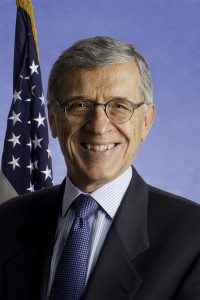
Today the US Court of Appeals ruled in favor of the Federal Communications Commission, agreeing that the FCC has authority to regulate broadband internet providers, including mobile internet companies.
This means that the Network Neutrality rules that went into effect last June are likely here to stay.
FCC Chairman Tom Wheeler was thrilled to see his signature issue, ensuring "network neutrality", upheld by the courts:
“Today’s ruling is a victory for consumers and innovators who deserve unfettered access to the entire Web, and it ensures the Internet remains a platform for unparalleled innovation, free expression and economic growth. After a decade of debate and legal battles, today’s ruling affirms the Commission’s ability to enforce the strongest possible internet protections—both on fixed and mobile networks—that will ensure the internet remains open, now and in the future."
AT&T, currently leading the battle to have the network neutrality rules overturned, vowed to fight on:
"We have always expected this issue to be decided by the Supreme Court, and we look forward to participating in that appeal."
Just What Is "Network Neutrality" Aiming To Do?
The debate over "Network Neutrality" goes back years, with the core issue being whether internet providers should treat all the data they transport equally (like phone carriers have long been required to do with calls), or can they play favorites - perhaps blocking services, favoring partners, or offering premium paid "fast lanes" that give some companies an advantage over others.
After much public feedback and debate, the FCC approved rules aimed to ensure network neutrality back in February 2015, and they went into effect in June and have been in place since.
The core "bright line rules" for both mobile and fixed broadband are as follows, according to the FCC:
- No Blocking: broadband providers may not block access to legal content, applications, services, or non-harmful devices.
- No Throttling: broadband providers may not impair or degrade lawful Internet traffic on the basis of content, applications, services, or non-harmful devices.
- No Paid Prioritization: broadband providers may not favor some lawful Internet traffic over other lawful traffic in exchange for consideration – in other words, no “fast lanes.” This rule also bans ISPs from prioritizing content and services of their affiliates.
These all seem like good ideas - but they do substantially limit the business models that internet providers can pursue. There are very good arguments to be made favoring both sides of the issue.
In general, most internet and tech companies (large and small) have been strongly in favor of net neutrality regulation. And most cable TV and telecom companies have been against it.
Implications for Mobile Internet & RVers

But what does all this legal wrangling mean for RVers?
One impact of the Network Neutrality rules going into effect last year was that the carriers all had to back away from blanket throttling of unlimited data plans after they had reached a certain usage cap each month, which the FCC considered unjustified and misleading.
Now all the carriers (except Verizon, which does not throttle at all) only temporarily slow down their heaviest unlimited plan users when they are on overly congested towers because doing so is seen as "legitimate network management" and is thus allowed.
The FCC is also taking a very close look at schemes like T-Mobile's Binge On free video streaming, and Verizon's FreeBee "Toll Free" Data and go90 video service - but has not stepped in to block any of them yet.
T-Mobile has been careful to make Binge On open to any video service that wants to apply, and no money changes hands - all in attempt to avoid violating Network Neutrality.
But with Verizon's FreeBee program where a sponsor is footing the bill and paying Verizon for access, Verizon is setting up a world where it is literally "pay to play" - and AT&T has plans to roll out a similar sponsored mobile video service of its own too. This is pushing the boundaries of network neutrality to the limit.
Imagine - if enough customers and content providers do embrace the FreeBee-style sponsored data model, Verizon will have very little incentive to ever lower the per-GB cost charged to customers for monthly data plans.
After all - the more expensive data is, the more likely customers will be compelled to seek out toll free alternatives.
This is the sort of dark future that network neutrality rules were designed to prevent.
Who Should RVers Cheer For?!?
As a consumer and an RVer - it probably comes down to your own personal beliefs on who you trust to be looking out for your best interests: Verizon, AT&T, and the various big carriers, or the FCC.
It is a tough call for many - and there is room for honest disagreement.
There is also clearly a lot of room for hyperbole and fear mongering and knee-jerk partisanship.
So far the FCC has been charting a very conservative course actually taking advantage of its authority to regulate, so we can only wait and see how this all ends up playing out in the end.
Further Reading:
This is a very complicated issue. Here are a few good articles on the subject, if you'd like to know more:
- Understanding “Network Neutrality” – Implications For Mobile Internet (our explanatory post on the issue last year)
- Understanding Unlimited Cellular Data Plans: Network Management, Throttling & Mobile Hotspot Usage
- Federal Register: Protecting and Promoting the Open Internet (the full FCC ruling & dissent)
- The Oatmeal Explains Net Neutrality in a Comic (biassed, but funny)
NOTE: Comments that are focused on the politics of this issue are not appropriate here, and will be deleted. We are however eager to hear your thoughts on how Network Neutrality rulings are likely to impact mobile internet users.
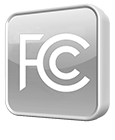
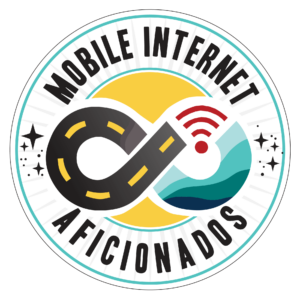
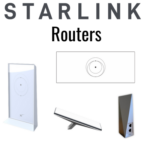
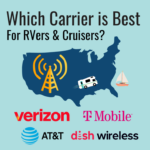




 Mobile Internet Resource Center (dba Two Steps Beyond LLC) is founded by Chris & Cherie of
Mobile Internet Resource Center (dba Two Steps Beyond LLC) is founded by Chris & Cherie of